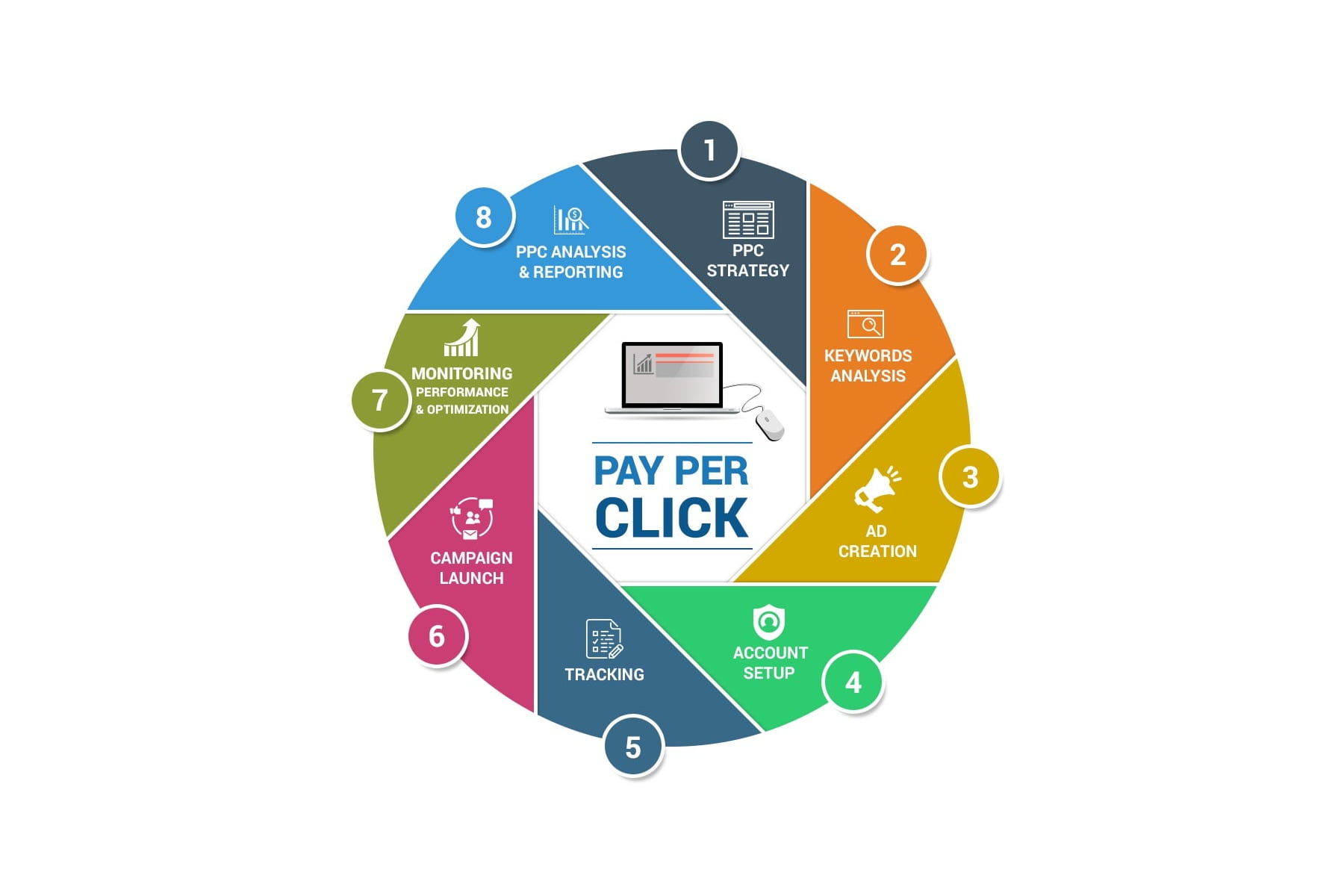PPC operates on a simple yet powerful concept: advertisers bid on specific keywords relevant to their products or services, and when users search for those keywords on search engines or browse websites related to those keywords, the ads are displayed. Advertisers only pay when a user clicks on their ad, hence the name “Pay-Per-Click.” This model ensures that businesses are not charged for ad placements but rather for actual clicks, making it a cost-effective advertising approach.
PPC (Pay-Per-Click) advertising has revolutionized the digital marketing landscape, offering businesses an effective way to drive targeted traffic to their websites and achieve specific marketing objectives. This beginner’s guide aims to demystify the world of PPC and provide valuable insights into its fundamental principles and benefits.
Understanding PPC Advertising
Pay-Per-Click (PPC) advertising is a digital marketing model that allows businesses to bid on specific keywords relevant to their target audience. When a user searches for a keyword that matches the advertiser’s bid, the ad is displayed on the search engine results page or relevant websites. The advertiser pays a fee each time a user clicks on their ad. This auction-based system ensures that advertisers only pay for actual clicks, making it a cost-effective advertising method.
PPC is an excellent way to reach potential customers who are actively searching for products or services like yours. By targeting specific keywords, you can position your ads in front of a relevant audience at the precise moment they are looking for what you offer. This level of precision targeting leads to higher click-through rates (CTRs) and better chances of conversion.
The Benefits of PPC Advertising
PPC advertising offers numerous benefits for businesses, making it a valuable addition to their digital marketing strategies. First and foremost, it provides immediate visibility for your brand. Unlike organic search engine optimization (SEO), which can take time to rank higher on search results, PPC ads appear instantly, giving your business a competitive edge.
PPC also provides unparalleled control over your budget and ad campaigns. You can set daily or monthly spending limits, ensuring you never exceed your budget. Additionally, you can adjust bids for keywords, enabling you to optimize your ad spend based on performance data.
Getting Started with PPC Advertising
To get started with PPC advertising, you need to select the right advertising platform based on your target audience and objectives. Google Ads and Microsoft Advertising are two popular choices. Conduct thorough keyword research to identify relevant and high-performing keywords. Keyword research tools like Google’s Keyword Planner and SEMrush can provide valuable insights.
Once you have a list of keywords, create compelling ad copy that encourages users to click. The ad should be concise, highlighting the unique selling points of your product or service. Ensure that your landing pages are relevant to the ad content and provide a seamless user experience.
Structuring Your PPC Campaigns
Effective campaign structure is crucial for a successful PPC strategy. Organize your campaigns into themed ad groups based on specific products, services, or target audiences. This segmentation allows you to tailor ad copy and landing pages for each group, increasing relevance and user engagement.
Setting Budgets and Bids
Determining your PPC budget involves balancing your advertising goals and the competitiveness of your industry. Start with a conservative budget and adjust as you gather performance data and understand the ROI. Be prepared to invest in experimentation to discover the most effective keywords and ad copies for your business.
Bidding on keywords requires strategic decision-making. Consider factors such as keyword relevance, search volume, and your competitors’ bids. Higher bids don’t guarantee success; it’s essential to balance your bids with the overall campaign budget and the potential ROI.
Monitoring and Optimizing Your PPC Campaigns
Regularly monitor your PPC campaign performance using analytical tools and the platform’s built-in reporting features. Track key metrics like CTR, conversion rate, and cost per conversion to gauge campaign effectiveness.
Identify underperforming keywords, ads, or ad groups, and make data-driven optimizations. Adjust your bids based on the performance of each keyword and ad to maximize your budget’s impact. Additionally, consider running A/B tests for ad variations to determine which performs best.
PPC Marketing and the Benefits for Businesses
PPC advertising offers tremendous opportunities for businesses to reach their target audience and achieve marketing objectives. By understanding the fundamentals and implementing effective strategies, even beginners can harness the potential of PPC to enhance brand visibility, drive targeted traffic, and boost conversions.
Ready to take your small business marketing to the next level? Trust the experts at Libra Web and Marketing Solutions to help you achieve your goals. Whether you need assistance with SEO, PPC advertising, web design, or social media marketing, our team has the knowledge and expertise to drive results. Contact us today to schedule a consultation and let us tailor a marketing strategy that suits your business needs. Together, let’s unlock the potential of your small business and watch it thrive in the digital landscape. Visit Lwam.co for more information.

